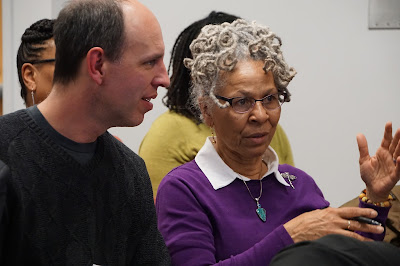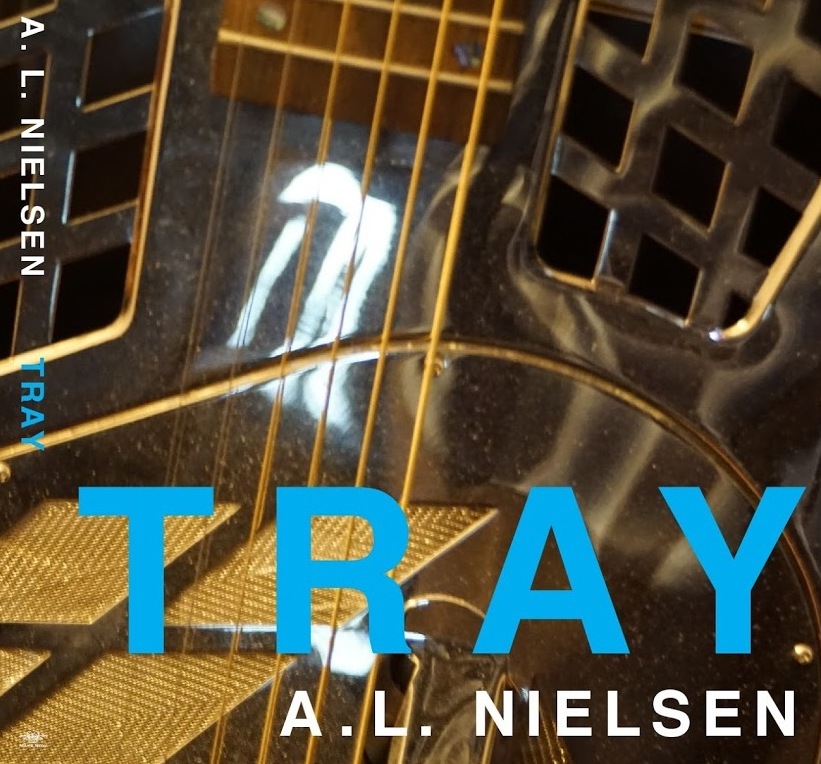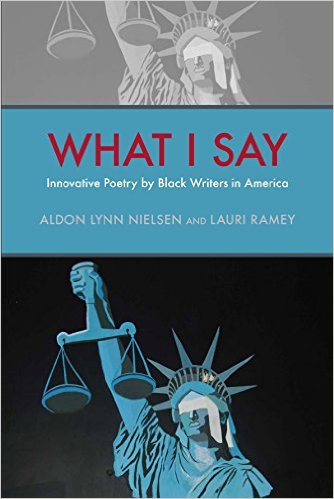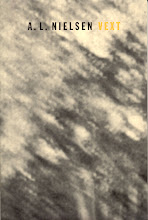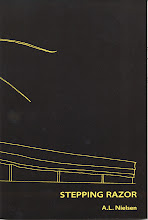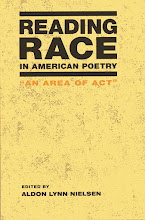I came eagerly looking forward to discussions with the people listed in the program; when I got there I found poets Tonya Foster, Ron Silliman and Erica Hunt in the house, and scholars Kathryne Gines, Cheryl Wall and Mary Helen Washington, along with so many others who had braved the weather to join together.
I was on the first panel, "The Nation and State in African American Literature," with Miriam Thaggert and Erica Edwards, Tasia Milton responding. My presentation was another installment from the work I've been doing this year on temporality, race and nation, As usual with me, I was operating from a floating home base in music and verse. I didn't get any panel selfies; maybe someone in the audience has a photo of us. But I did collect a good audio recording of the session.
Other sessions took up "Defining Blackness" and "Metacritical Directions." Brent Hayes Edwards offered a keynote with further meditations on the archive.
At the close, Mathes and Shockley, who had been writing constantly in those little notebooks of theirs, drew forth a set of discussion questions and, like the title says, future directions. Then it was off to dinner, where we continued our round table at one long, narrow table.














